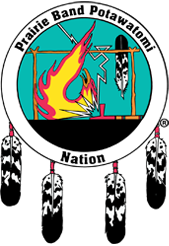January 08, 2015 –
MAYETTA: The Food Distribution Program on Indian Reservations (FDPIR) monthly income standards were updated October 1, 2014 and are listed below:
Household Size: Monthly Income Limit:
1 $1,128
2 $1,466
3 $1,805
4 $2,153
5 $2,519
6 $2,886
7 $3,224
8 $3,562
For each additional household member, add $339.
The income deductions allowed for FDPIR are listed below.
Earned Income Deduction: A 20% deduction is applied to gross earned income, including self-employment income.
Dependent Care Deduction: Households may deduct the actual cost of care for a child or other dependent when necessary for a household member to search for, accept, or continue employment or to attend training or pursue education that is preparatory to employment. Dependent care expenses are only deductible if the care is provided by a non-household member and the household makes a money payment for the service.
Child Support Deduction: Households that incur the cost of legally required child support to or for a non-household member are allowed a deduction for the amount of monthly child support paid.
Medical Expense Deduction: Households that incur monthly medical expenses by any household member that are age 60 or older or disabled are allowed a deduction in the amount of out-of-pocket medical expenses paid in excess of $35 per month. Allowable medical expenses include, but are not limited to, medical and dental care, hospitalization or outpatient treatment, nursing care, health insurance premiums, Medicare premiums, dentures, hearing aids, prosthetics, and eye glasses.
Home Care Meal-Related Deduction: Households who furnish the majority of meals for a home care attendant are allowed an income deduction equal to the maximum SNAP benefit for a one-person household. The home care meal-related deduction amount for the 48 Contiguous U.S. States is $194.
Standard Shelter/Utility Expense Deduction: Households that incur at least one monthly shelter or utility expense are allowed a standard income deduction of $400. Allowable shelter/utility expenses include, but are not limited to, rent, mortgage, home loan payments, property taxes, electricity, water, propane, sewerage, garbage collection, and service for a land line telephone.
The Potawatomi Food Distribution Program serves low-income families residing in Jackson County in which at least one household member is an enrolled member of a federally recognized Indian tribe; Prairie Band Potawatomi tribal members residing in Brown County; and non-Natives residing within the PBPN Common Land boundaries who meet all eligibility criteria.
FDPIR is an alternative to the Supplemental Nutrition Assistance Program (SNAP), formerly known as the Food Stamp Program. Household members are not permitted to receive USDA commodity food and SNAP benefits at the same time. Dual participation by any household member in SNAP or another Food Distribution Program is strictly prohibited.
Potawatomi Food Distribution Program applications can be downloaded athttp://www.pbpindiantribe.com/community-services.aspx. For more information about eligibility requirements and how to apply, please contact Tracy Potts at 785-966-2718.
